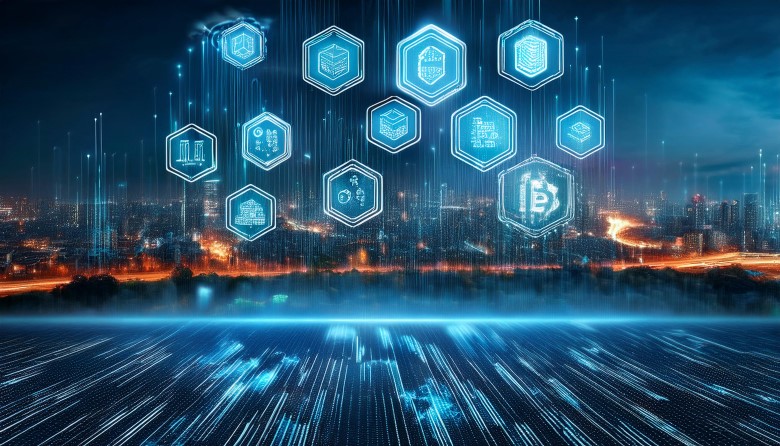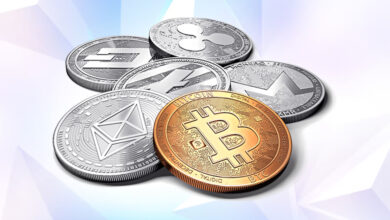How Real-World Asset Tokenization is Transforming Global Finance

Real-world asset (RWA) tokenization is quickly becoming a cornerstone of blockchain technology’s application in traditional finance. By digitizing physical assets such as real estate, commodities, and securities, the tokenization process enhances liquidity, transparency, and accessibility, ultimately revolutionizing how global markets function.
According to a comprehensive report by MarketsAble.com on RWA tokenization, published in Q2 2024, key developments, institutional adoption, and future trends are driving this sector forward. Major players like Ripple, Goldman Sachs, and BlackRock have made significant strides in bringing tokenization to the forefront of finance, as highlighted in the report. This article explores the report’s findings, including expert insights from key industry figures like Alex Chehade, and what they mean for the future of RWA tokenization.
Key Developments in RWA Tokenization
Institutional Adoption
Leading financial institutions are moving aggressively into RWA tokenization. Goldman Sachs, for instance, has announced several tokenization projects aimed at enhancing liquidity for traditionally illiquid assets like real estate and money market funds. Similarly, Ripple has partnered with Archax to tokenize hundreds of millions of dollars’ worth of real-world assets on the XRP Ledger (XRPL), pushing the boundaries of what blockchain can do for traditional finance.
BlackRock’s BUIDL fund, focusing on tokenizing U.S. Treasuries, further illustrates how institutional players are leveraging blockchain to modernize fund management. This move is expected to not only increase liquidity but also reduce operational inefficiencies, according to the report by MarketsAble.com.
Tokenization Across Different Sectors
Real Estate
Tokenizing real estate opens new investment opportunities by allowing fractional ownership, making high-value properties more accessible to a wider pool of investors. This shift is expected to drive the tokenized real estate market to a value of $26 billion by 2034, as projected in the MarketsAble.com report. Projects like those initiated by platforms such as Blocksquare and Propy are at the forefront of this transformation, offering secure, blockchain-based property transactions.
Trade Finance
The global trade finance gap, currently estimated at $2.5 trillion, presents significant opportunities for tokenization. By offering tokenized trade finance products, platforms like Tradeleaf are enabling small and medium-sized enterprises (SMEs) to access much-needed capital. The use of tokenized trade finance could address liquidity issues and unlock new opportunities for businesses in emerging markets.
Sports Assets and Memorabilia
A growing trend is the tokenization of sports assets, with football teams, stadiums, and memorabilia increasingly becoming digitized. Platforms like Polytrade allow fans to buy fractional shares in these assets, promoting greater fan engagement while opening new revenue streams for sports clubs.
Regulatory Challenges and Opportunities
The report by MarketsAble.com also discusses the regulatory landscape and its critical role in shaping the future of RWA tokenization. The United States Securities and Exchange Commission (SEC) has played a key role by approving tokenized exchange-traded funds (ETFs), spurring interest in tokenization. However, navigating cross-border tokenization remains complex, especially given the variations in legal frameworks across different regions.
In Europe, the Markets in Crypto-Assets (MiCA) regulations are a significant step forward, providing a clear framework for companies seeking to tokenize assets under EU law. Additionally, countries like South Korea and Japan are becoming leaders in tokenizing assets such as real estate and commodities, through collaborative efforts that ensure regulatory compliance.
UAE’s Proactive Approach to RWA Tokenization Regulation
The UAE is taking notable steps toward regulating Real-World Asset (RWA) tokenization through its leading financial regulators. The Dubai Virtual Assets Regulatory Authority (VARA) is working closely with industry stakeholders to incorporate RWA tokenization into its regulatory framework. This includes running proof-of-concept exercises to tackle regulatory challenges while encouraging innovation in tokenizing assets like real estate, bonds, and carbon credits. Additionally, the Abu Dhabi Global Market (ADGM) is preparing to release a consultation paper in early 2025, which will provide clear regulatory guidelines for RWA tokenization, ensuring a compliant and secure environment for the tokenization of real-world assets in the UAE.
Expert Insight: The Role of Stablecoins in RWA Tokenization
Alex Chehade, Strategic Advisor to Tokinvest, highlighted the critical role stablecoins are expected to play in the future of RWA tokenization. “Stablecoins will serve as the bridge between traditional fiat and digital assets, offering both stability and efficiency for blockchain transactions,” Chehade stated. He further explained that stablecoins could streamline processes like cross-border payments, escrow services, and liquidity management, making tokenized assets more accessible to a global market.
Chehade’s insight underscores the growing importance of stablecoins in facilitating seamless transactions in tokenized markets, particularly for large-scale institutional participation. Their role in ensuring market efficiency and stability will be a driving factor in the adoption of RWA tokenization across sectors.
Future Trends in RWA Tokenization
Growth Projections
According to the MarketsAble.com report, the RWA tokenization market is expected to grow exponentially, with projections estimating the total value of tokenized assets to reach $10 trillion by 2030. As blockchain technology evolves, the demand for tokenized real-world assets will likely increase, offering new opportunities for both retail and institutional investors.
Technological Innovations
The report also highlights technological innovations as key to the future of tokenization. Interoperable blockchain networks like Polkadot and Cosmos will enable tokenized assets to move seamlessly across different ecosystems. Smart contracts and automated marketplaces will reduce transaction costs and increase the speed of asset transfers, providing more efficient management of tokenized assets.
Sustainability and Tokenization
Tokenization is also finding its place in the sustainability sector. Companies like VeChain and Dimitra are pioneering efforts to tokenize agricultural assets and water rights, creating new ways to tackle sustainability issues such as resource allocation and water scarcity.
Paving the Way for a Tokenized Future
The future of Real-World Asset (RWA) tokenization is on a transformative path, as highlighted by the comprehensive insights from the MarketsAble.com report. As blockchain technology continues to drive innovations in finance, RWA tokenization presents a compelling opportunity to redefine the structure of traditional markets by enhancing liquidity, transparency, and access to assets. With key sectors like real estate, trade finance, and even sports memorabilia poised to benefit, the impact of tokenization will be far-reaching.
However, for tokenization to achieve its full potential, regulatory evolution is critical. Countries like the UAE, with their forward-thinking regulators—VARA and ADGM—are leading the way by shaping the frameworks needed to foster both innovation and security in this burgeoning market. As a UAE-based company, we are deeply aligned with these efforts, supporting the region’s ambitions to become a global hub for tokenized financial products.
With growing institutional support, technological advancements, and regulatory backing, the adoption of RWA tokenization is set to revolutionize global finance, offering both institutional and retail investors unprecedented opportunities. The UAE’s proactive stance will ensure that the region is at the forefront of this financial transformation, setting a global benchmark for how blockchain can reshape traditional markets.





